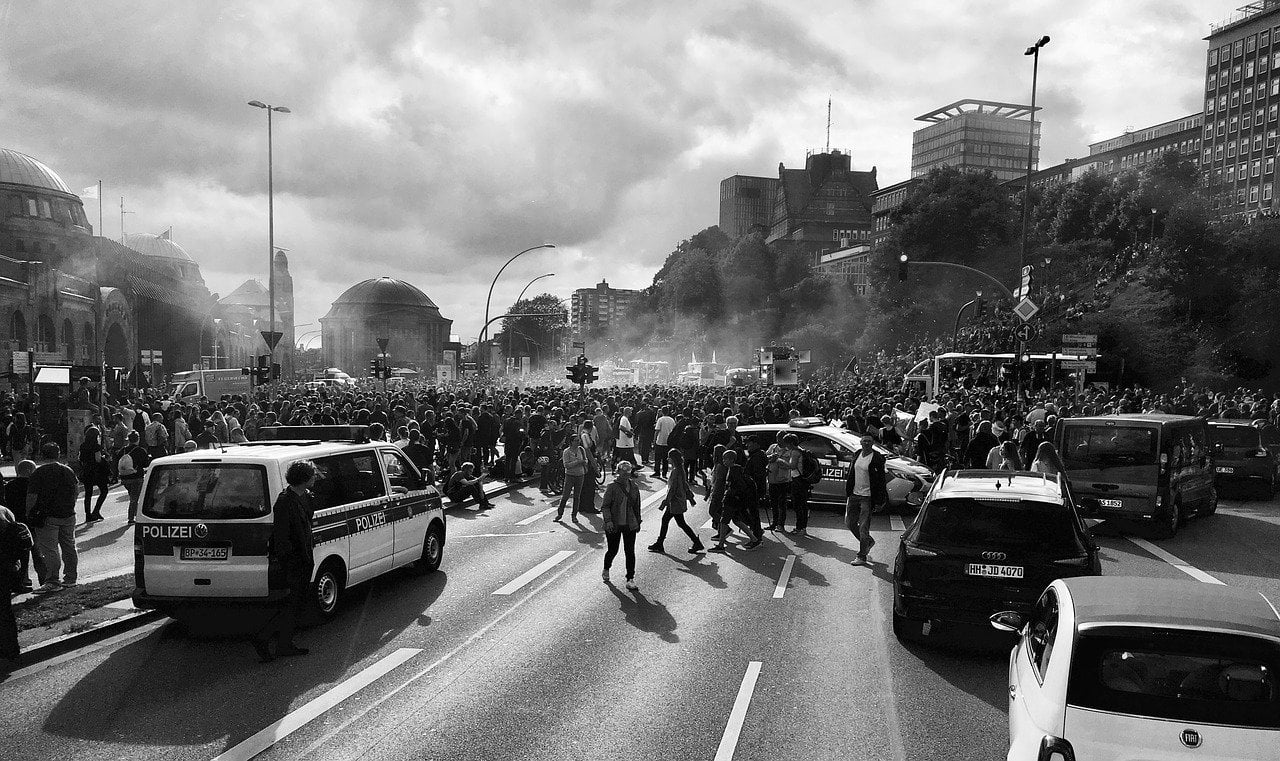Two States Permit Drivers to Plow Into Protestors; There’s An Alternative to Such Bills, Now Pending in About a Dozen States
Q1 2021 hedge fund letters, conferences and more
Drivers Permitted To Runover Protestors
WASHINGTON, D.C. (April 22, 2021) - Oklahoma and Iowa have passed bills which grant immunity to drivers whose vehicles strike and injure protestors in public streets, but there's a simpler and better alternative for dealing with criminals who deliberately block traffic to make a point, says public interest law professor John Banzhaf, who has actually helped put the alternative into action.
Indeed, notes Banzhaf, bills are now being considered in Missouri, Oklahoma, Utah, and about a dozen other states to deal with the increasingly common tactic of protestors who deliberately and illegally stand or sit on streets and highways to block traffic, including similar measures to legally permit drivers to run into them.
Those proposing and supporting such legislation argue that existing laws which prohibit deliberately blocking traffic obviously are not preventing the increasing use of this frustrating and illegal tactic, apparently because police often tolerate such conduct, or at least decline to make arrests.
Moreover, suggests Banzhaf, prosecutors often refuse to prosecute, or agree to let the criminals off with only a small fine and/or probation - all of which do little to deter such illegal conduct.
Joint And Several Liability
But legislation which would make it easier for anyone who is delayed by an illegal street or road blockage to sue the offenders, and to hold each person who participated liable for the entirety of the damages from all drivers (e.g., in a class action law suit), under the existing legal doctrine known as "joint and several liability," would probably be far more effective as well as more humane.
Ironically, although the Oklahoma bill would send to jail "every person who shall unlawfully obstruct the normal use of any public street, highway or road," it would not automatically make them civilly liable to the victims.
Fortunately, says Banzhaf, such civil legal actions could nevertheless be brought if the bill becomes law, and can even be brought under existing law, since deliberately blocking cars on a road - so that drivers cannot then readily leave them - constitutes the civil tort of "false imprisonment."
False Imprisonment
Indeed, "false imprisonment," since the drivers are effectively unable to leave their vehicles, is a so-called intentional tort, for which plaintiffs - including all who were delayed (e.g., in a class action law suit) - can be awarded punitive damages as well as damages for the time they were effectively imprisoned on the street.
In fact, class action law suits based upon this concept - inspired by Prof. Banzhaf - are currently pending against those who illegally blocked the George Washington Bridge, thereby effectively imprisoning hundreds in their cars.
But legislation to clarify and codify this cause of action, also providing minimum damages (e.g. $1000 for each person falsely imprisoned), and making anyone found liable pay the attorney fees of the plaintiffs, would be preferable, and better than authorizing a purge (as in the movie with this name) on our streets and highways, he argues.





